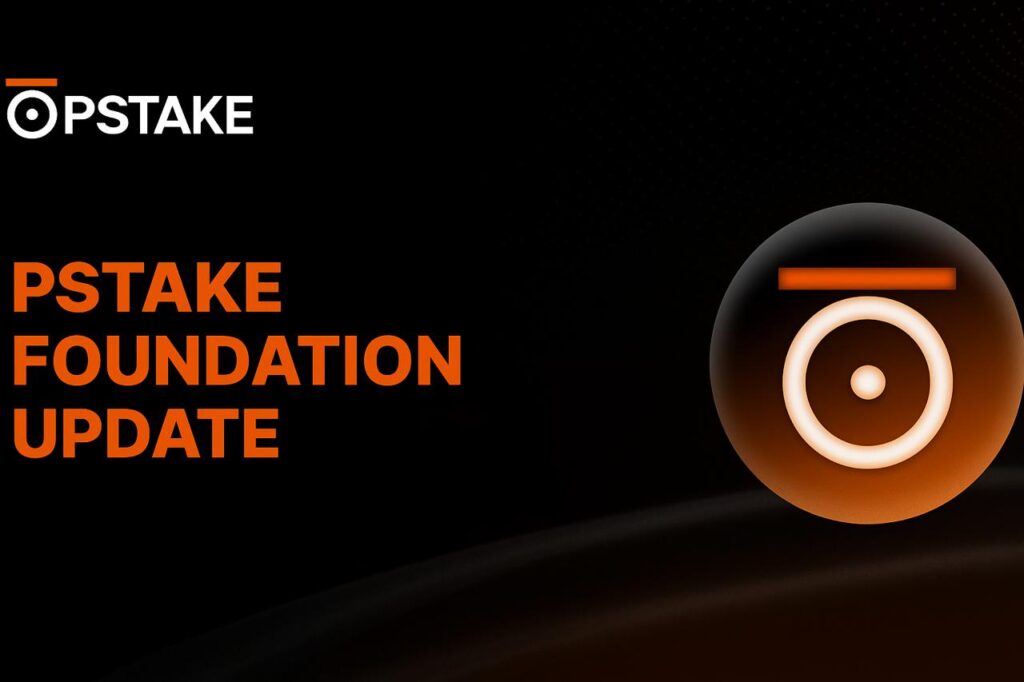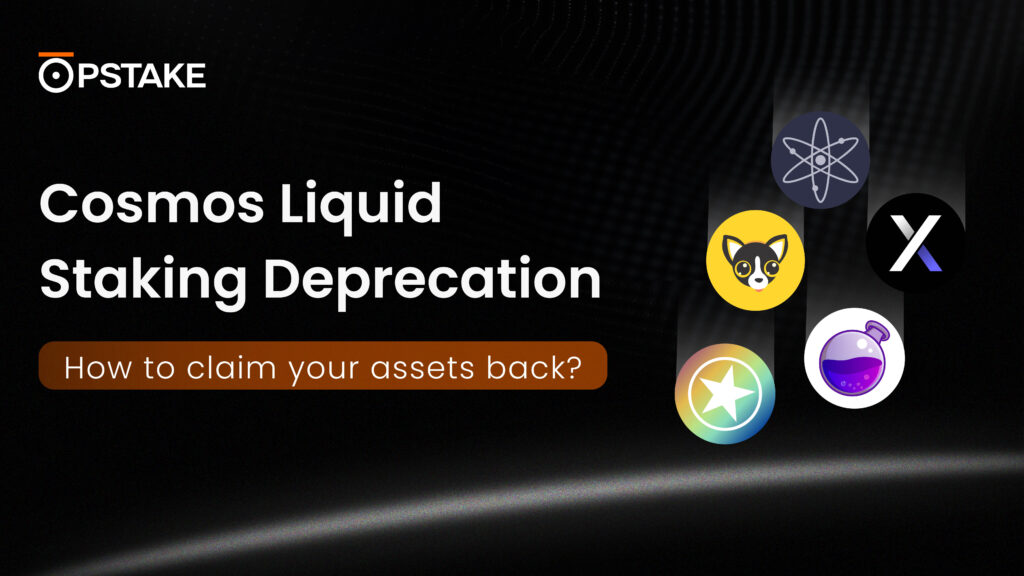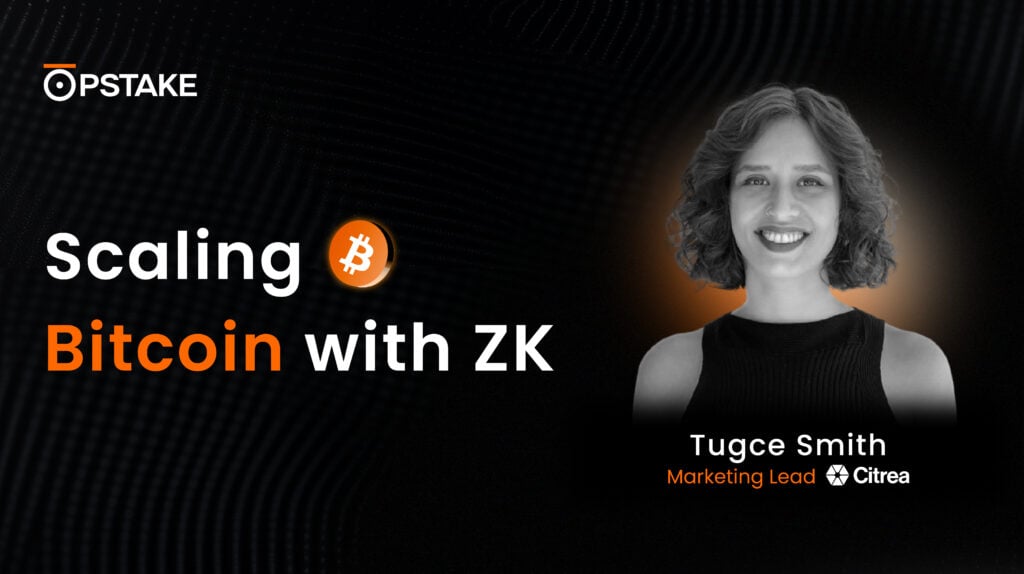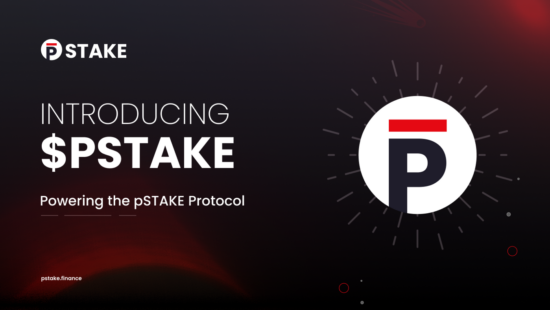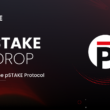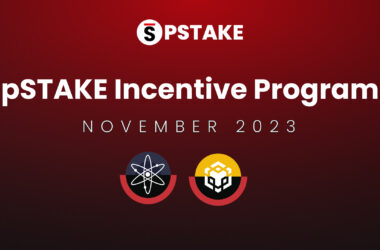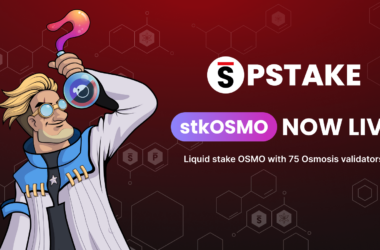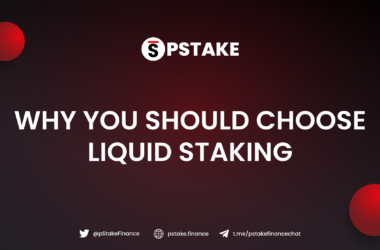TL;DR
- We’re excited to introduce pSTAKE’s governance token — $PSTAKE
- $PSTAKE is an ERC-20 token that will be used for the governance of the pSTAKE protocol
- $PSTAKE aligns incentives of all the stakeholders in the pSTAKE ecosystem for the long-term growth of the protocol
With pSTAKE uncapped launch supporting liquid staking for ATOM planned for later this month, we are excited to introduce pSTAKE’s governance token — $PSTAKE. A detailed token launch and distribution blog will follow in an upcoming update.
$PSTAKE is an ERC-20 token that intends to provide its holders with a two-fold benefit, including:
- Participation in protocol improvement proposals through voting
- Participation in protocol security
$PSTAKE is the governance and incentivization/dis-incentivization token of the pSTAKE protocol. $PSTAKE holders can participate in the protocol’s governance to ensure its long-term success by staking $PSTAKE on the pSTAKE staking contract to secure the protocol while being incentivized to do so. $PSTAKE token will also be used as a dis-incentivization token in case stakeholders staking $PSTAKE act maliciously or are unable to perform their respective duties appropriately.
Currently, pSTAKE issues 1:1 pegged ERC-20 liquid staking representative tokens on the Ethereum network, with a long-term intent of building a multi-chain protocol that will enable liquid staking across multiple networks.
At its core, the $PSTAKE token aligns stakeholder incentives in pSTAKE’s liquid staking ecosystem.
The various stakeholders are:
- Users (stkTOKEN holders)
- pBridge Validators
- Safelisted Validators (validators who receive delegations via the pSTAKE protocol)
- pSTAKE governance participants
Below, we explore the role of the various stakeholders in the pSTAKE ecosystem.
pSTAKE Users
pSTAKE users, in this context, are the holders of stkTOKENs. stkTOKEN holders maintain liquid staked positions which allows them to exit their staking position at any given point in time. stkTOKEN holders can also use their staked representative tokens as collateral on borrowing platforms, supply liquidity on DEXs, and engage in various other activities to generate additional yield on their staked assets.
stkTOKEN holders will be incentivized to perform certain activities which will help accelerate the growth of the pSTAKE ecosystem, such as bootstrapping and providing sustained liquidity on DEXs.
$PSTAKE will effectively align the incentives of pSTAKE users with stakers of the supported network by distributing a major portion of the pSTAKE supply to stkTOKEN holders over time.
In the future, it is also expected that representative token holders (or stkTOKEN holders) may have the ability to participate in the governance of the underlying chain. For example, stkATOM holders should have the ability to vote on Cosmos Hub governance proposals. Currently, stkTOKEN holders delegate their voting rights to the pSTAKE safelisted validator set.
pSTAKE currently supports liquid staking for ATOM (the native token of the Cosmos Hub), with plans to support liquid staking for multiple assets — from both within and outside the Cosmos ecosystem. This includes ETH, XPRT, LUNA, SOL, and many other assets.
pBridge Validators

The pBridge is one of the core components of the pSTAKE protocol that enables assets to flow from one blockchain to another. The current pBridge implementation supports the minting of pegged tokens on the Ethereum blockchain for the projects built on Cosmos technology that utilizes Tendermint PBFT consensus.
pBridge is an MPC-based bridge that is secured by some of the leading PoS validators. In order to bootstrap pSTAKE and ensure that the security of pBridge is not compromised, a set of highly reputed, industry-leading validators has been onboarded onto the bridge, with a goal of the validator set increasing over time. To minimize security risks, the current set of validators have been thoroughly vetted.
At the time of uncapped launch, the active validators securing the pBridge would be:
In order to build skin-in-the-game for the bridge validators, the validators are incentivized with delegations of the native tokens staked via pSTAKE. Currently, all the pBridge validators receive equal amounts of ATOM delegations.
As support for more assets is introduced on pSTAKE (such as XPRT, AKT, LUNA, etc.), the power of setting protocol parameters that might potentially affect the underlying chain’s security will be shifted to the users of the protocol. Therefore, the objective is to distribute the power of governance to all the stakeholders within the pSTAKE ecosystem.
Safelisted Validators
Safelisted Validators are the validators that receive delegations via pSTAKE. Currently, the Safelisted Validators are the same as the pBridge validators, all of whom are listed above. As the value locked on pSTAKE increases, more validators will be safelisted via governance to receive delegations via pSTAKE to further decentralize the underlying network and mitigate risk for pSTAKE users.
pSTAKE Governance Participants
pSTAKE will have governance functionality at the time of token launch, which will allow pSTAKE users to vote on protocol improvement proposals that include but are not limited to modification of parameters such as:
- Minting fees
- Staking service fees
- Validator onboarding parameters
- Voting to onboard validators
$PSTAKE holders will also be able to vote on proposals to:
1. Provide grants to contributors of the protocol
2. Spend funds in the community development fund, etc
It is expected that, on token launch, the power of governance will be distributed to users of the protocol (stkTOKEN holders) and certain members of the cryptocurrency community who are active participants in the governance of major layer 1 networks and DeFi protocols via airdrops.
Details around the launch of $PSTAKE and distribution will be shared at a later stage.
Disclaimer:The information captured in the blog is subject to updations based on the project development and is published in good faith for the users.
About pSTAKE
pSTAKE is a liquid staking protocol that unlocks liquidity for your staked assets. With pSTAKE, you can securely stake your Proof-of-Stake (PoS) assets, participate in protocol improvements and security to earn staking rewards, and receive staked underlying representative tokens (stkASSETs) which can be used to explore additional yield opportunities across DeFi.
At present, pSTAKE supports Binance Chain (BNB), Cosmos (ATOM), Persistence (XPRT), and Ethereum (ETH) networks’ native tokens, with a view to support more chains and assets in the future (SOL, and AVAX).
Developed by Persistence
Persistence is a Tendermint-based, specialised Layer-1 network powering an ecosystem of DeFi applications focused on unlocking the liquidity of staked assets. Persistence facilitates the issuance and deployment of liquid-staked stkASSETs, allowing users to earn staking rewards while participating in DeFi primitives, such as lending/borrowing and liquidity provisioning on DEXs.
Persistence aims to offer a seamless staking and DeFi experience for PoS (Proof-of-Stake) users and enable developers to build innovative applications around stkASSETs.
Join Our Movement
Twitter | LinkedIn | Telegram | YouTube | Reddit | [email protected]


